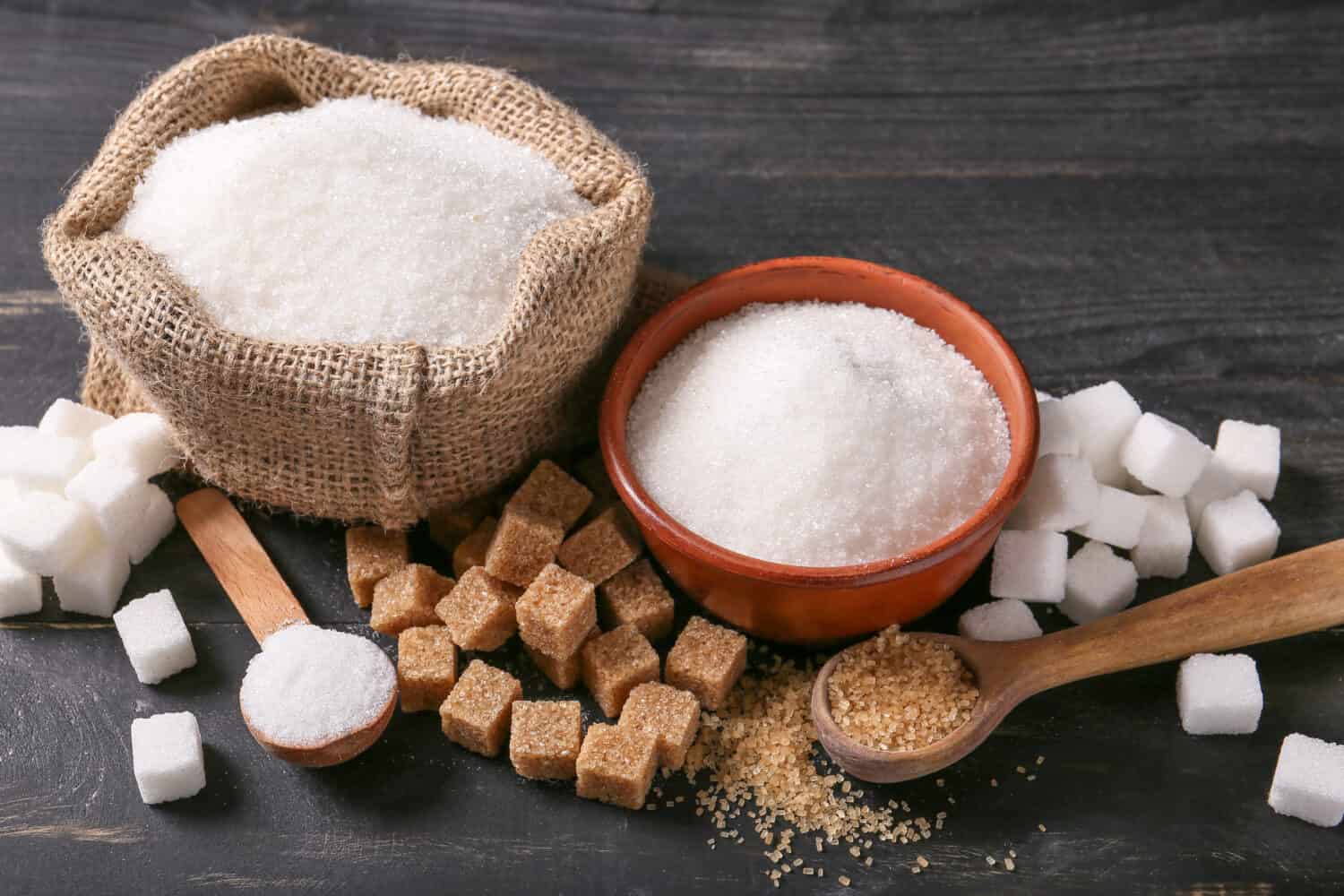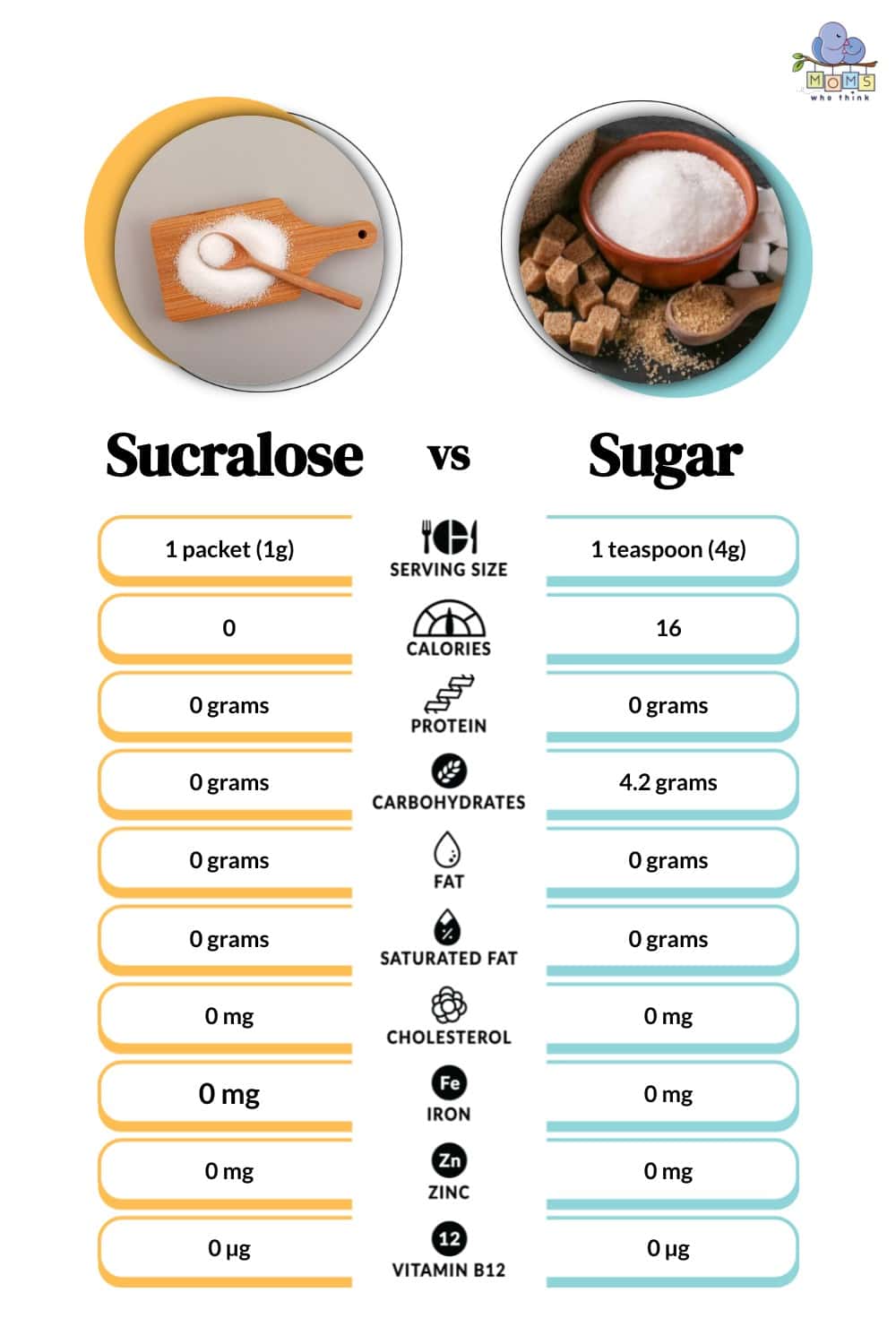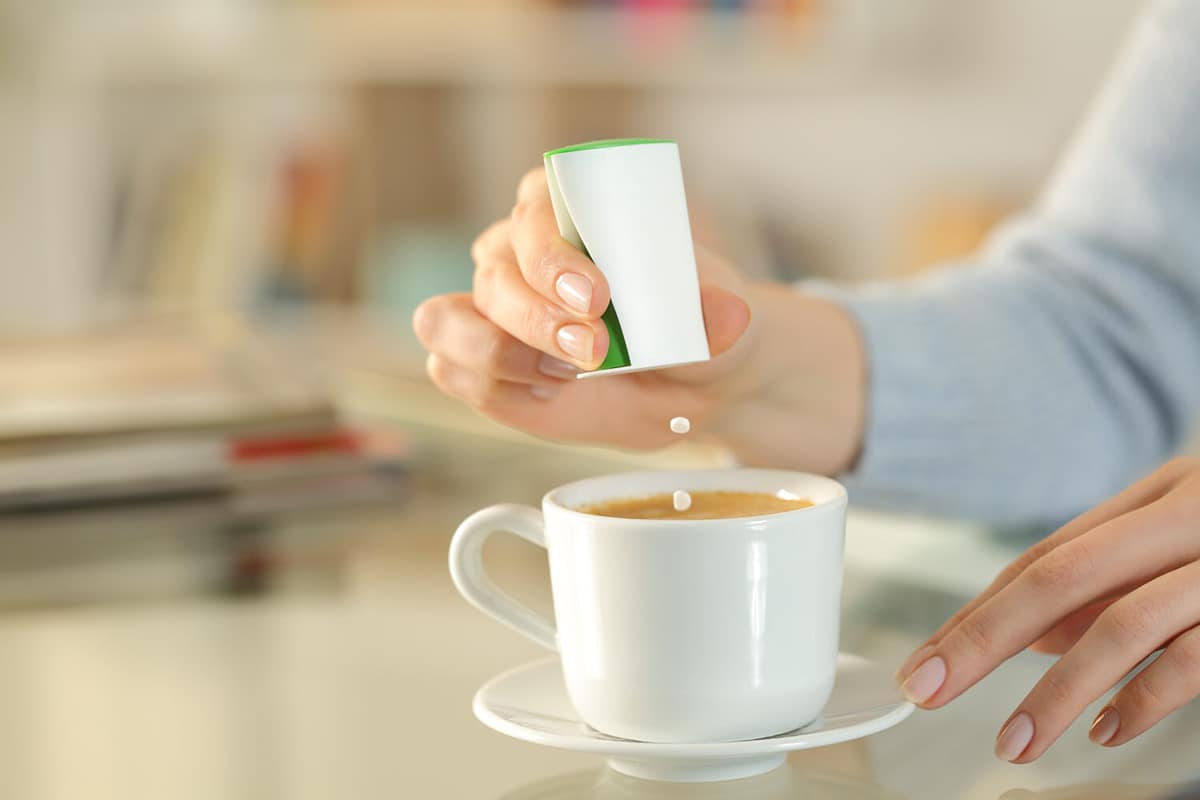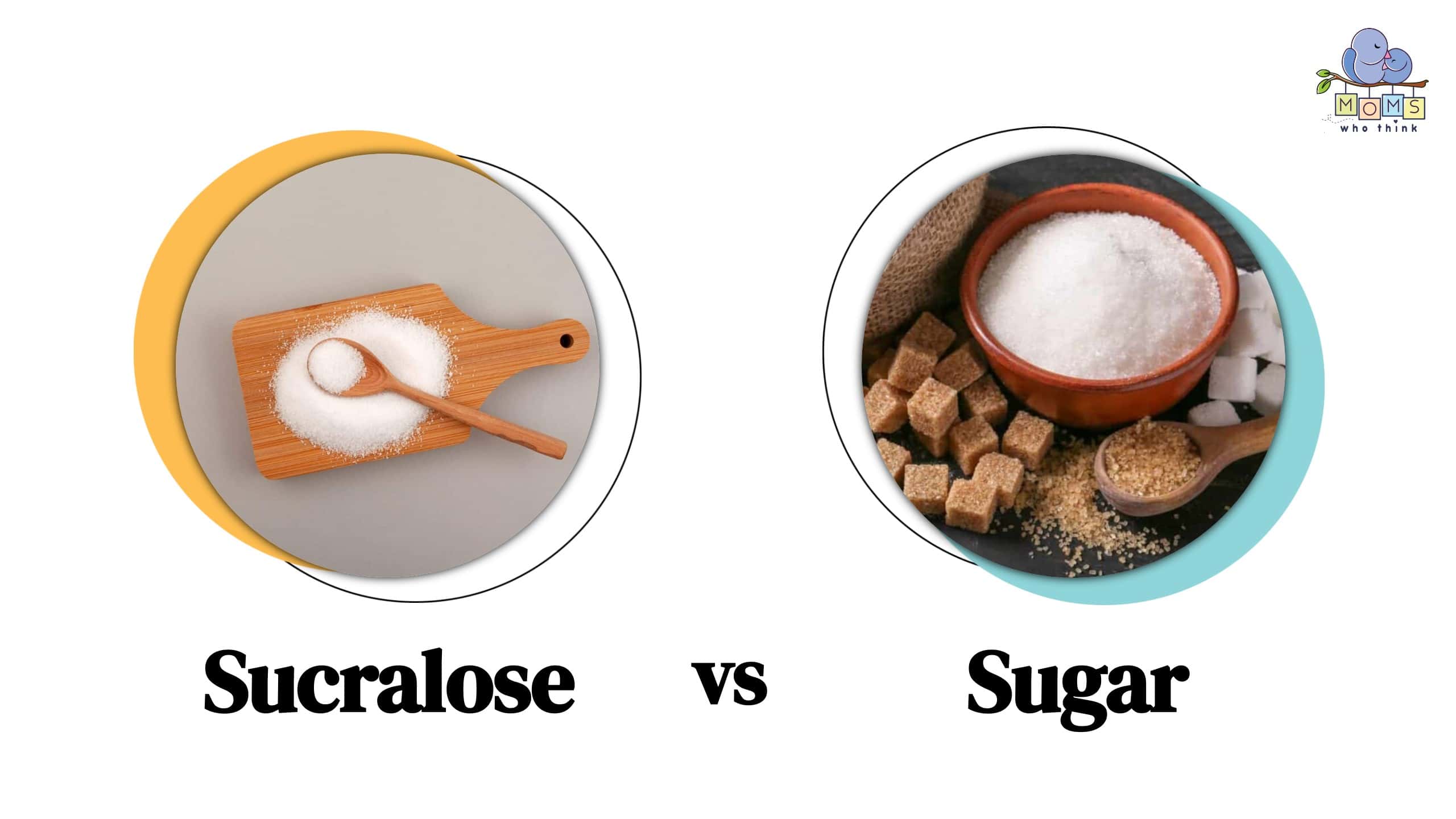Sure, sugar and sucralose (an artificial sweetener marketed as SPLENDA®) both offer a way to sweeten everything from iced tea to cookies. But how do sugar and sucralose differ, and which one is healthier for us to consume? The surface answer is that sucralose is significantly sweeter than its sugar counterpart, so a little goes a long way. It’s also calorie-free, which makes it a go-to for those who are diabetic or looking to limit their calorie intake. We’re taking a closer look at sucralose vs. sugar to figure out how each option impacts our health and which one is better suited to our dietary needs.
Sucralose vs. Sugar: What Are They?
First things first, what are sugar and Sucralose? Let’s break it down. Sugar is the beloved simple carbohydrate derived from plants, fruits, vegetables, and even nuts. If you’re a purist, sugar is likely your go-to — it occurs naturally, and it’s typically the quickest energy source when it comes to kickstarting your body for physical activity. A key component in cooking and baking, it's also a simple pleasure that lends itself to unparalleled culinary techniques such as caramelization and browning.
Sucralose, on the other hand, is a type of synthetic sweetener used as a sugar replacement in various foods and beverages. From a scientific standpoint, it's made by taking a sugar molecule and replacing three hydrogen-oxygen groups with chlorine atoms. In short, it is sugar that is chemically altered to contain almost no calories, making it a standard go-to for those looking to monitor their sugar, carb, and calorie intake.
Sucralose vs. Sugar: Dissecting the Differences
If you have memories of watching your grandmother adding heaping spoonfuls of sugar into her afternoon tea, you’re not alone. (Though, to be fair, Grandma probably didn't yet have access to sucralose!) Nevertheless, the truth about sugar is that it often requires a significant amount to make a dent in sweetening something to our tastes. In comparison, you only need a small amount of sucralose to achieve the same level of sweetness — it is, undoubtedly, sweeter than sugar. In fact, it’s a whopping 600 times sweeter! Using it in small doses is key.
Additionally, sugar contains roughly four calories per gram, while sucralose contains approximately 1 per packet. Let’s get deeper into how they both impact our health.

Sugar is a common go-to. But is it better for us than the alternative? Image: Pixel-Shot, Shutterstock
©Pixel-Shot/Shutterstock.com
Sucralose vs. Sugar: Which one is Safer?
While sugar may hold some nostalgia when it comes to baking, sodas, sweet tea, movie theater candy, and other goodies, one of the main differences between sugar and sucralose is in calorie intake. As we mentioned earlier, sugar possesses around four calories per gram, while sucralose is calorie-free. But what does that really mean? In a nutshell, sucralose sweetens food and beverages without causing your blood sugar to spike the way sugar does. And that's not the only side effect — the effects of too much sugar consumption can lead to even greater and long-lasting health repercussions. Aside from the more obvious dental effects such as tooth decay, it can cause chronic conditions such as obesity, fatty liver disease, diabetes, and heart disease. Sugar can even cause general, whole-body inflammation.
Physical backlash isn't the only concern when it comes to sugar. Excessive sugar intake can also affect mental health. Some studies link it to impairment of cognitive function as well as an increase in emotional disorders such as depression and anxiety. Essentially, the study found a higher risk of depression in people who consumed higher amounts of added sugars like soda, juice, and pastries.
Losing Weight
Ever since sucralose came on the scene over two decades ago (the FDA approved it for general use in 1999), it has offered a zero-calorie alternative that has continued to gain in popularity. It is a common swap for sugar with fewer calories. For those with medical conditions such as diabetes, it's an easy sugar replacement. It maintains flavor while also maintaining blood sugar levels. In addition, sucralose is altered such that most of it passes through your body rather than storing it for later use as energy. This isn’t, however, to suggest sucralose helps you lose weight.
Despite plenty of studies on this particular topic, there are some wildly different results out there. Some studies suggest those who swap regular sugar with synthetic sweeteners may weigh (on average) only a pound or so less than those who don’t. This is obviously only a marginal difference.
Habits can be everything — exchanging sugar sodas for those with artificial sweeteners (typically labeled as “diet”) can assist in calorie counting. Therefore, they can help keep weight off. Still, other studies show that those who consume sucralose-infused diet beverages actually wind up consuming more calories than those drinking beverages with regular sugar. The studies go on to say that sucralose can potentially stimulate your appetite, causing you to eat more frequently. Given the research discrepancies and ongoing studies, the jury is still out.
Other Health Effects
Perhaps the most commonly asked question when it comes to the safety of sucralose is, “Can it cause cancer?” The answer is that sucralose has undergone extensive testing as it pertains to cancer, and the FDA declared it non-carcinogenic with no neurological or reproductive effects. But there are still a few health implications to consider. For example, animal-based testing and research have historically shown the presence of gut damage and increased inflammation. Over time, that inflammation can lead to further issues such as obesity or diabetes. Mind you, this testing has not yet extended to humans, so the evidence is still somewhat circumstantial. Regardless, it's worth noting.
Sucralose vs. Sugar: What is the Nutritional Value?
Here's a quick breakdown of the nutritional value of sucralose vs. sugar.

Sucralose vs. Sugar: Do They Taste Different?
Perhaps most surprisingly, sucralose additives don’t taste all that different from sugar. In fact, many people tout SPLENDA® as one of the few sugar substitutes that doesn’t leave an aftertaste. It also dissolves quite easily in liquids, so it's an easy addition to drinks. That lends it to being used in a number of everyday products, including candy, chewing gum, ice cream, yogurt, soda, toothpaste, and beyond. Interestingly, SPLENDA® is made from a process that begins with sugar. In other words, unlike other sweeteners such as aspartame or Stevia, it has humble beginnings as actual sugar. And since it retains its sweetness even when heated, it makes for a great sugar substitute when baking. Sucralose offers a way to satisfy your sweet tooth without adding carbs.
Fun fact: Artificial sweetener packets are color-coded. The next time you reach for something to sweeten your iced tea or coffee, reach for the yellow packet. That’s the sucralose!

Whether you're using it in your coffee, tea, or baking, sucralose is a handy (and low-calorie!) alternative to sugar. Image: Pheelings Media, Shutterstock
©Pheelings media/Shutterstock.com
Sucralose vs. Sugar: The Bottom Line
- Sugar is naturally occurring, while sucralose is a chemically altered form of sugar. Whether this is a “pro” or “con” largely depends on your wellness outlook and lifestyle choices. You do you!
- Measured by weight, sucralose is 600 times sweeter than regular sugar. This means you have to consume less of it to reach the same level of sweetness as regular sugar.
- Sugar equates to approximately four calories per gram, while sucralose is zero. The jury is still out on whether or not sucralose can assist in weight loss. However, it does translate to less calorie and carbohydrate intake.
- Sugar and sucralose can both withstand heat, making them conducive to cooking and baking. With that said, sugar offers technique options that sucralose can't quite accomplish, such as browning and caramelization. Sucralose also has heat limitations that don't quite reach the same threshold as sugar.
- Both sugar and sucralose are water-soluble.
- According to most consumers, neither sugar nor sucralose leaves an aftertaste.
- Based on extensive testing by the FDA, neither sugar nor sucralose directly affects reproduction, neurology, or the onset of cancer.
- Animal testing suggests sucralose may cause gut damage and inflammation.
In Conclusion
The biggest takeaway here is that small doses of sugar or sucralose aren’t considered detrimental to your overall health. Whether you opt to include sugar, sucralose, or a combination of both in your diet, remember that everything is best consumed in moderation!
Up Next:
- Sucralose vs. Stevia: Which is Healthier and 3 Key Differences
- Corn Syrup vs. Sugar: Major Differences Between These Two Sweeteners
- The Truth About Stevia and Artificial Sweeteners

